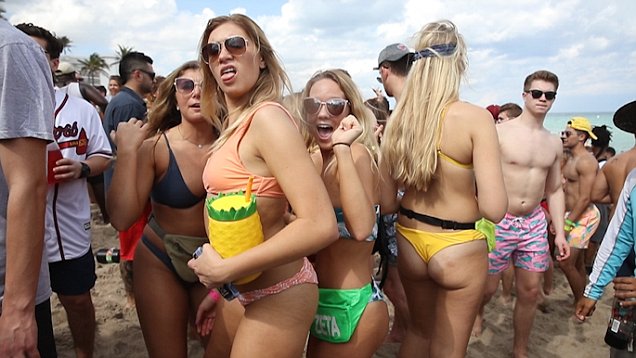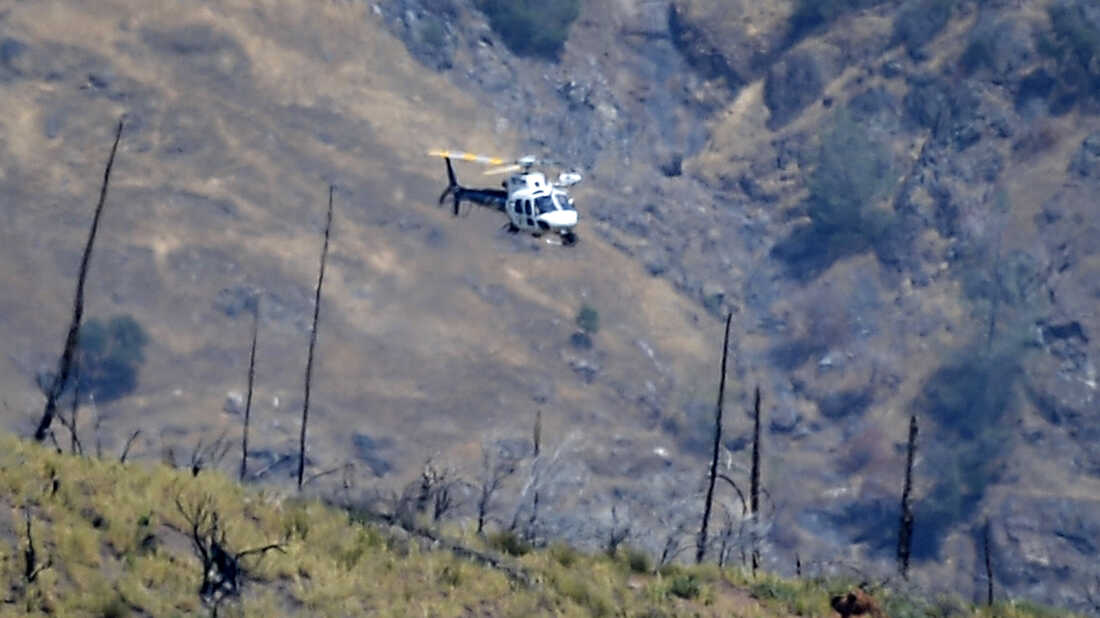Dad Shuts Door On Son After Spring Break Revelry
Ah, Spring! The time for winter-weary students from up north to make the annual pilgrimage to the sunny beaches in southern Florida. The chance to mix and mingle with like-minded partyers in March is often highly anticipated by the revelers and planned weeks in advance.
But this year, before spring break, a pandemic broke out in the U.S. after entering in mid-January with a traveler from China who lived north of Seattle, Washington. By early March, American public health and safety officials crafted rules to slow the spread of the infection that resembles severe bronchitis.
On March 16, 2020, the federal government issued new health safety guidelines to prevent spreading the viral disease included social distancing – keeping a 6-foot distance between people. Obviously, this is impossible to do in a crowd, which is why concerned citizens appealed to the Florida governor to close all the beaches and send the kids home.
That didn’t happen. Some localities did take it upon themselves to close their public beaches during spring break. Others places didn’t. Americans were largely unaware of what was going on in China, and then Italy: rapid onset of symptoms with a 50/50 or better chance of recovery.
On March 18, Brady Sluder became the posterboy for COVID-19 disregard among young adults who had planned to celebrate the end of winter and sow some wild oats over the collegiate spring break. The sunburned lad got his 15 minutes of fame after a CBS interviewer captured these fatalistic remarks:
“If I get corona, I get corona. At the end of the day, I’m not gonna let it stop me from partying.”
Sluder, 22, of Milford, Ohio, was by no means alone as thousands of youthful pleasure-seekers continued to party on at close quarters, shoulder-to-shoulder in bars and tightly packed in restaurants.
Three days later, an article in Politico made the astute observation that:
“As Florida officials move to expel the hundreds of thousands of spring breakers who ignored calls for social distancing, public-health specialists are nervously wondering what will happen once the party’s over.”
Similar to cruise ship passengers who were cooped up with other infected patients under a mandatory quarantine and then became ill with COVID-19, crowded hotel rooms full of spring break roommates and guests presented a similar risk – even more so because the infected were free to socialize with others who then stood a chance of getting the infection from airborne or physical (touch) contact with the new strain of coronavirus.
By the time the collegiate crowd bade a sad farewell to sunny Florida for another year, many schools had closed in their absence and kicked out any resident students. So, homeward they went, in many cases.
On March 22, Sluder admitted he was wrong about his apathy toward the growing pandemic in an Instagram post:
“I would like to sincerely apologize for the insensitive comment I made in regards to COVID-19 while on spring break…I’d like to take this time to own up to the mistakes I’ve made and apologize to the people I’ve offended…Don’t be arrogant and think you’re invincible like myself.”
The next day, on March 23, the University of Tampa tweeted that at least five students returning with other students from the school after spring break had tested positive for COVID-19 and wished everyone concerned “a full and rapid recovery.”
Which leads us to the title of this story.
On March 30, Matt Levine, 21, and his friends from Springfield College in Massachusetts, showed up on his parents’ doorstep after a downer Spring Break in South Padre Island, Texas, where “We were only allowed to go to the beach in small groups and couldn’t have speakers,” and “there was basically no one on the island.” Plus, the police “seemed like they were trying to ruin our good time.”
Salesman Peter Levine, 52, Matt’s father, had already advised his son by phone to abandon the holiday early and come to New York as planned:
“I spoke with him every day and told him that maybe they should come home. I was aggravated. The news here was getting worse and worse. Matt sent me pictures of him and his friends congregating outdoors and listening to live music. It’s the scene you would not want to be in.”
Finally, Peter told his son steer clear of the homestead to protect his elders:
“His grandparents live here and there is no need to expose them to god knows what he had been exposed to!”
Matt and his buddies got a ride to Nanuet, New York, after Peter refused to collect them from the airport. His exact words were:
“No chance!”
Seeing the uninvited group assembled on the family doorstep, Peter blocked the way so they couldn’t go inside. The father wasn’t completely heartless – he prepared some survival provisions for the student travelers:
“I had filled the trunk of Matt’s car with groceries and left him an envelope containing $300 in cash. All the guys’ keys were on the front seat. They got out of the car [from the airport] near our driveway and I said, ‘Stay right there! Do not go any further!'”
In another act of kindness, Peter said it would be okay to pee in the bushes before tackling the 2-1/2-hour drive that lay ahead of his son’s posse. Two of them gratefully accepted.
Peter said the household quarantine would last after the end of the semester, with most American colleges, including Springfield, already closed to all but remote classes:
“Their lease ends in June and none of the parents want them home. It’s too risky.”
In the immortal words of many a bar DJ at closing time:
“You don’t have to go home but you can’t stay here.”








Recent Comments